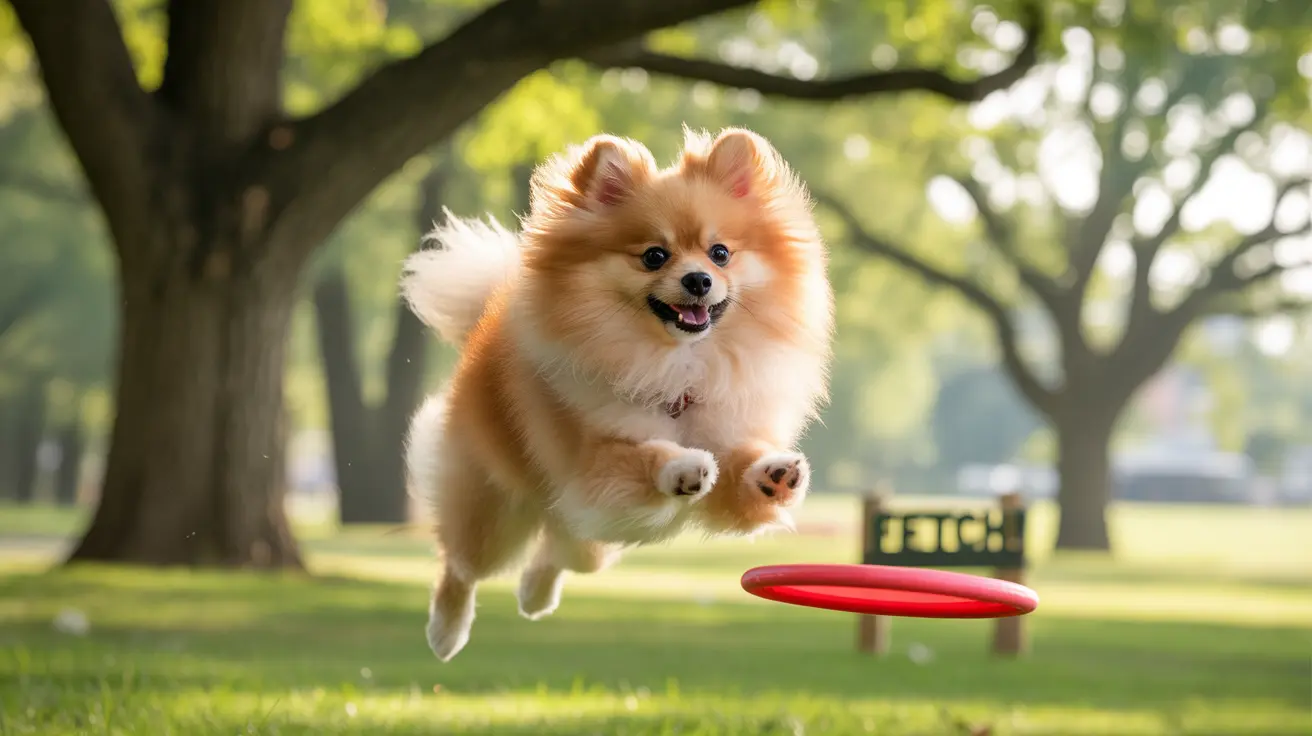When considering adding a Pomeranian to your family, you might wonder about their temperament and potential for aggressive behavior. While these fluffy companions are known for their bold personalities, the truth about Pomeranian aggression might surprise you. Let's explore what research and experts say about these popular toy breeds and their behavioral tendencies.
Understanding Pomeranian temperament is crucial for potential owners and those who already share their lives with these spirited little dogs. Despite their small size and cute appearance, Pomeranians are complex animals with distinct personality traits that require proper understanding and management.
Natural Temperament of Pomeranians
Contrary to concerns about aggression, Pomeranians are naturally friendly, spirited, and affectionate dogs. Originally bred as companion animals, these small dogs were developed specifically for their loving nature and ability to bond with humans. Their typical temperament includes:
- Playful and energetic personality
- Strong devotion to their family members
- Alert and curious nature
- Intelligent and responsive disposition
Common Misconceptions About Pomeranian Aggression
Many behaviors that appear aggressive in Pomeranians are actually manifestations of other underlying factors. These may include:
- Excitement during play being mistaken for aggression
- Protective instincts rather than true aggression
- Fear-based reactions due to their small size
- Normal territorial behavior common to many breeds
Factors That Can Influence Aggressive Behavior
Environmental Triggers
Several environmental factors can contribute to defensive or aggressive responses in Pomeranians:
- Lack of proper socialization
- Overwhelming situations
- Changes in household routine
- Exposure to threatening situations
Health-Related Causes
Sometimes, apparent aggression may be linked to health issues:
- Pain or discomfort
- Hormonal imbalances
- Age-related cognitive changes
- Dental problems
Prevention and Training Strategies
Preventing aggressive behaviors starts with proper training and socialization:
- Early exposure to various people and situations
- Positive reinforcement training methods
- Consistent boundaries and rules
- Regular exercise and mental stimulation
Creating a Balanced Environment
A well-adjusted Pomeranian needs:
- Regular exercise appropriate for their size
- Mental stimulation through games and toys
- Clear routine and structure
- Positive social interactions
Frequently Asked Questions
Are Pomeranians naturally aggressive or is aggression caused by other factors?
Pomeranians are not naturally aggressive dogs. Most aggressive behaviors are caused by external factors such as poor socialization, fear, or health issues rather than inherent temperament.
What common triggers lead to aggressive behavior in Pomeranians and how can I recognize them?
Common triggers include fear, resource guarding, pain, and territorial behavior. Watch for signs like growling, excessive barking, rigid posture, or showing teeth when approaching certain situations or objects.
How can early socialization and training prevent aggression in a Pomeranian?
Early socialization exposes puppies to various experiences, people, and animals in a positive way, helping them develop confidence and appropriate responses. Consistent positive training reinforces good behavior and prevents fear-based reactions.
What should I do if my Pomeranian suddenly shows signs of aggression or irritability?
First, consult a veterinarian to rule out medical causes. If health issues are not the cause, work with a professional dog trainer to identify triggers and develop a behavior modification plan.
How can I manage and stop my Pomeranian from resource guarding or fear-based aggression?
Address resource guarding through positive reinforcement training, teaching your Pomeranian that giving up items leads to positive outcomes. For fear-based aggression, work on building confidence through controlled exposure to triggers and reward-based training.
Conclusion
While Pomeranians can display aggressive behaviors under certain circumstances, they are not inherently aggressive dogs. With proper training, socialization, and care, these delightful companions typically show their true nature as loving, friendly pets. Understanding their needs and addressing any behavioral issues promptly helps ensure a happy, well-adjusted Pomeranian.






